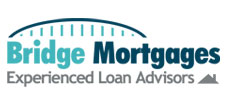Looking to refinance your mortgage? Well stop, don’t rush; there are a few things you should consider before refinancing. With mortgage rates at an all-time low, refinancing can save you thousands of dollars. However, if you rush into a new rate without negotiate for the best deal or you don’t understanding all the details of your new mortgage you could end up losing money.

|
Is Refinancing Right For You?
A general rule is that refinancing becomes while if the current interest rate on your mortgage is at least two percent higher than the prevailing market rate.
However, depending on your loan amount, you might choose to refinance a loan that is only one-point-five percentage points higher then the current rate. |
When choosing to refinance, consider is how long you plan to stay in your house? Given the costs of the refinancing, it usually takes at least three years to fully realize the savings from a lower interest rate. Refinancing is only good idea if you intend to stay in your house long enough to make the additional fees worthwhile.
Remember To Shop Around
The most common mistake homeowners make when refinancing their mortgage is they fail to shop around. Would you buy a new car without first checking out the competitions prices?
Call two or three lenders to compare their interest rates and closing cost, then compare then to the terms offered by your current lender. Comparing offers allows you to get a better idea of what rate you may be able to qualify for. It also puts you in a better negotiating position with the lenders.
Once you receive offers, pay close attention to the interest rate, points, and closing costs. Talk with the loan officers and see if you can negotiate a better interest rate. Most often, the initial rate offered is not the best a particular lender can offer.
Consider All The Cost
There is no such thing as getting your cake and eating it too. It is important to understand that refinancing your mortgage is not free. Consumers need to ask their mortgage originator to provide all costs that will be incurred in order to complete the refinancing process in writing. There are “no cost” rates available where all of the closing costs are built into the rate, but they usually involve higher rates. This is one of the reasons shopping around is so important.
Many lenders require that you have at least ten percent equity in your home, but there is usually at least one lender willing to underwrite loans in which the borrower has only five percent equity. Nonetheless, beware low equity loans can involve relatively high mortgage insurance costs. In most cases, a homeowner should plan on paying an average of three to six percent of the outstanding principal in refinancing costs. One way of saving on some of these costs is to first check with your current mortgage lender, they may we willing to wave some of these fees; including the fees for the title search, surveys, and inspections.
Check Your Credit Twice
If your credit history is less than sparkling, it might be worth while to invest sometime into cleaning up your credit before you applying for a home loan. Before you apply for your new mortgage, first check your credit report for any mistakes or outdated information. It’s estimated that 60 percent of credit reports contain some type of incorrect information. Federal law allows consumers to receive a free copy of their credit bureau report each year. Review your report and make any change requests directly with the credit reporting agency.
Depending on your credit score, the process of cleaning up your credit can be as easy as reporting errors on your credit report or as complex as hiring a professional credit counselor to get your finances in order. If your credit problems cannot be fixed quickly you will almost certainly have to pay more than borrowers who have a good credit history. Yet, don't assume that the only way to get credit is to pay a high price. Ask how your past credit history affects the price of your loan and what you would need to do to get a better price.
Don't assume that minor credit problems or difficulties stemming from unique circumstances will limit your loan choices to only high-cost lenders. No matter what your credit score, remember the key to finding the best deal or rate is to shop, compare, and negotiate.
|

